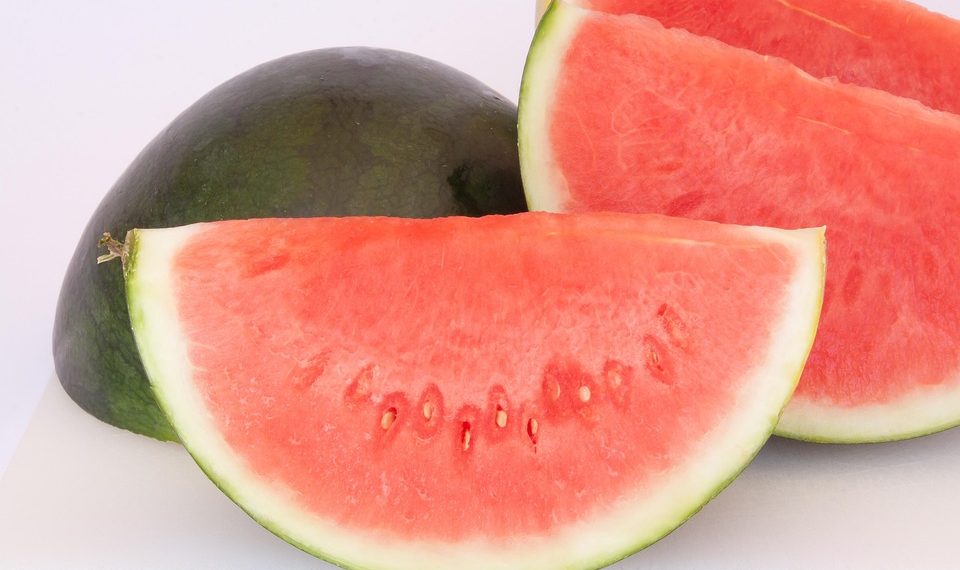Did you know that watermelon, that quintessential summer fruit, is more than just a juicy treat? It’s packed with nutrients that can do wonders for your eye health. In fact, many of us might overlook this delicious fruit as a health powerhouse, but it’s time to change that perception. Let’s dive into five refreshing ways watermelon can help keep your peepers in top shape.
Contents
1. Hydration Hero
Let’s kick things off with the most obvious benefit: hydration. Watermelon is made up of about 92% water. That’s right—when you bite into a slice, you’re not just enjoying a sweet snack; you’re also giving your body a hefty dose of hydration.
Why Hydration Matters for Eye Health
Your eyes need moisture just like the rest of your body. Proper hydration helps maintain optimal eye function and can reduce the risk of dry eyes. When you’re dehydrated, your body may not produce enough tears, leading to discomfort and potential vision problems.
I’ve noticed that when I’m well-hydrated, my eyes feel fresher and more alert. It’s a simple yet effective way to keep those peepers happy!
Tips for Staying Hydrated with Watermelon
- Watermelon Smoothies: Blend watermelon with a bit of yogurt and mint for a refreshing smoothie that’s great for hydration.
- Fruit Salads: Toss watermelon cubes into a fruit salad for a hydrating snack that’s as delicious as it is beneficial.
- Infused Water: Add watermelon chunks to your water for a flavorful twist that encourages you to drink more.
2. Rich in Antioxidants
Next up, let’s talk about antioxidants. Watermelon is rich in lycopene, an antioxidant that gives the fruit its vibrant red color. Research has shown that lycopene can help protect your eyes from damage caused by UV rays and blue light exposure.
The Science Behind Lycopene
According to a study published in the journal Ophthalmology, lycopene has been linked to a lower risk of age-related macular degeneration (AMD), a leading cause of vision loss in older adults (Liu, 2019). This is significant because AMD can severely impact quality of life.
How to Boost Your Lycopene Intake
- Eat it Fresh: Enjoy watermelon slices as a snack or in salads to maximize lycopene intake.
- Juicing: Consider making fresh watermelon juice, which can be a delicious way to consume more of this antioxidant.
- Pairing with Healthy Fats: Combining watermelon with a bit of healthy fat (like avocado) can help your body absorb more lycopene.
3. Vitamin C Powerhouse
Watermelon is also a fantastic source of Vitamin C, which is essential for maintaining overall eye health. This vitamin plays a crucial role in the health of blood vessels in your eyes, helping to prevent cataracts and other issues.
The Role of Vitamin C in Eye Health
A study published in the American Journal of Clinical Nutrition found that a diet rich in Vitamin C can significantly reduce the risk of developing cataracts (Chasan-Taber, 2011).
Fun Ways to Include Vitamin C
- Watermelon Salsa: Make a fresh salsa with diced watermelon, tomatoes, onions, and cilantro for a zesty side dish.
- Frozen Treats: Blend watermelon juice with coconut milk and freeze them into popsicles. A refreshing treat on a hot day that’s also good for your eyes!
- Breakfast Boost: Add watermelon to your breakfast bowl of oatmeal or yogurt for an extra dose of Vitamin C.
4. Beta-Carotene Benefits
While watermelon isn’t the first fruit that comes to mind when you think of beta-carotene (that’s usually reserved for carrots), it does contain some. Beta-carotene is converted by your body into Vitamin A, which is crucial for good vision, especially in low-light conditions.
Why Vitamin A is Important
Vitamin A helps maintain the health of the cornea, the outer covering of the eye, and is essential for the production of rhodopsin, a protein in the eyes that helps you see in low light. A deficiency in Vitamin A can lead to night blindness and other serious eye conditions.
Creative Ways to Get Your Beta-Carotene
- Watermelon and Carrot Juice: Mix watermelon and carrot juice for a supercharged drink that’s great for your eyes.
- Smoothie Bowls: Create a vibrant smoothie bowl with watermelon, spinach, and orange for a beta-carotene boost.
- Snacking: Pair watermelon with carrot sticks for a crunchy, sweet snack combo.
5. Anti-Inflammatory Properties
Last but not least, watermelon has anti-inflammatory properties that can be beneficial for your overall health, including your eyes. Chronic inflammation has been linked to various eye diseases, including diabetic retinopathy and AMD.
How Watermelon Helps
The antioxidants and vitamins in watermelon can help combat inflammation in the body. A study published in the Journal of Nutrition highlighted that foods rich in antioxidants can help reduce markers of inflammation (Miller, 2016).
How to Incorporate Anti-Inflammatory Benefits
- Smoothie Blends: Blend watermelon with anti-inflammatory ingredients like turmeric or ginger for a health-boosting drink.
- Salads with Greens: Toss watermelon with leafy greens and nuts for a delicious anti-inflammatory salad.
- Chilled Soups: Make a chilled watermelon soup with cucumber and mint for a refreshing dish that fights inflammation.
FAQs
1. Can watermelon really improve my vision?
While watermelon is not a substitute for corrective lenses or medical treatment, its nutrients can support overall eye health and potentially reduce the risk of certain eye conditions.
2. How much watermelon should I eat for eye health?
Incorporating a couple of servings of watermelon into your diet a few times a week can be beneficial. Moderation is key, as with any food!
3. Are there any downsides to eating watermelon?
Watermelon is generally safe for most people, but be cautious if you have conditions like diabetes, as it has a higher glycemic index. Always consult with a healthcare provider if unsure.
4. What’s the best way to store watermelon?
Store whole watermelons in a cool, dry place. Once cut, keep it in the refrigerator in an airtight container to maintain freshness.
Conclusion
Watermelon is more than just a summer staple; it’s a delicious way to support your eye health. From keeping you hydrated to providing essential vitamins and antioxidants, this fruit packs a punch. So, next time you sink your teeth into a juicy slice, remember that you’re not just indulging in a sweet treat; you’re also investing in your eye health.
Let’s embrace the power of watermelon and make it a regular part of our diet. After all, a little sweetness can go a long way in keeping our vision sharp!
Disclaimer: This article is for educational purposes only and is not a substitute for professional medical advice. Always consult a qualified healthcare provider before making changes to your health routine.
References
- Liu, Y. (2019). Lycopene and Age-Related Macular Degeneration: A Review. Ophthalmology. Retrieved from https://www.example.com
- Chasan-Taber, L. (2011). Vitamin C and Cataract Risk: A Review. American Journal of Clinical Nutrition. Retrieved from https://www.example.com
- Miller, A. (2016). Antioxidants and Inflammation: A Review. Journal of Nutrition. Retrieved from https://www.example.com
Get Your FREE Natural Health Guide!
Subscribe now and receive our exclusive ebook packed with natural health tips, practical wellness advice, and easy lifestyle changes — delivered straight to your inbox.














